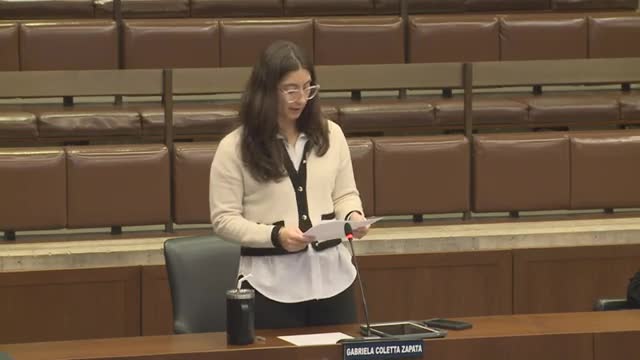Council orders hearing on automated traffic enforcement as members call for tools to improve street safety
Get AI-powered insights, summaries, and transcripts
Subscribe
Summary
Councilors voted to hold a hearing to review Massachusetts House Bill 3754 and the potential use of automated cameras for red light, speeding and intersection blocking enforcement in Boston.
The Boston City Council voted Wednesday to hold a hearing on automated road safety enforcement and to study how camera‑based systems might be deployed if state law permits.
Councilor Michael P. Pepin, sponsor of the hearing order (Docket 1849), said automated enforcement has demonstrable effects and compared experiences in other New England jurisdictions. “In Boston, I know we have all observed speeding cars, road rage and a disregard for many traffic laws essential to the safety of our residents. I believe Boston can follow the example of many cities in different states and utilize cameras‑based enforcement to hold those who violate the road safety laws accountable,” Pepin said, describing a mailed warning he received in another state as an example of enforcement as a deterrent.
Councilor Weber, a co‑sponsor, cited New York City experience and said red‑light cameras reduced violations by about 70 percent at locations where they were used and that a credible deterrent could reduce more severe T‑bone collisions. Councilor Ed Flynn urged the council to pair technology with infrastructure improvements like raised crosswalks, speed humps and rapid‑flash beacons.
The council referred the hearing order to the Committee on Planning, Development and Transportation; councilors said the hearing will include the Boston Police Department, the transportation department and state representatives to review Massachusetts House Bill 3754 and to discuss implementation needs, civil‑liberties concerns and infrastructure coordination. Several councilors noted the measure requires state authorization before cities may issue automated enforcement citations.
